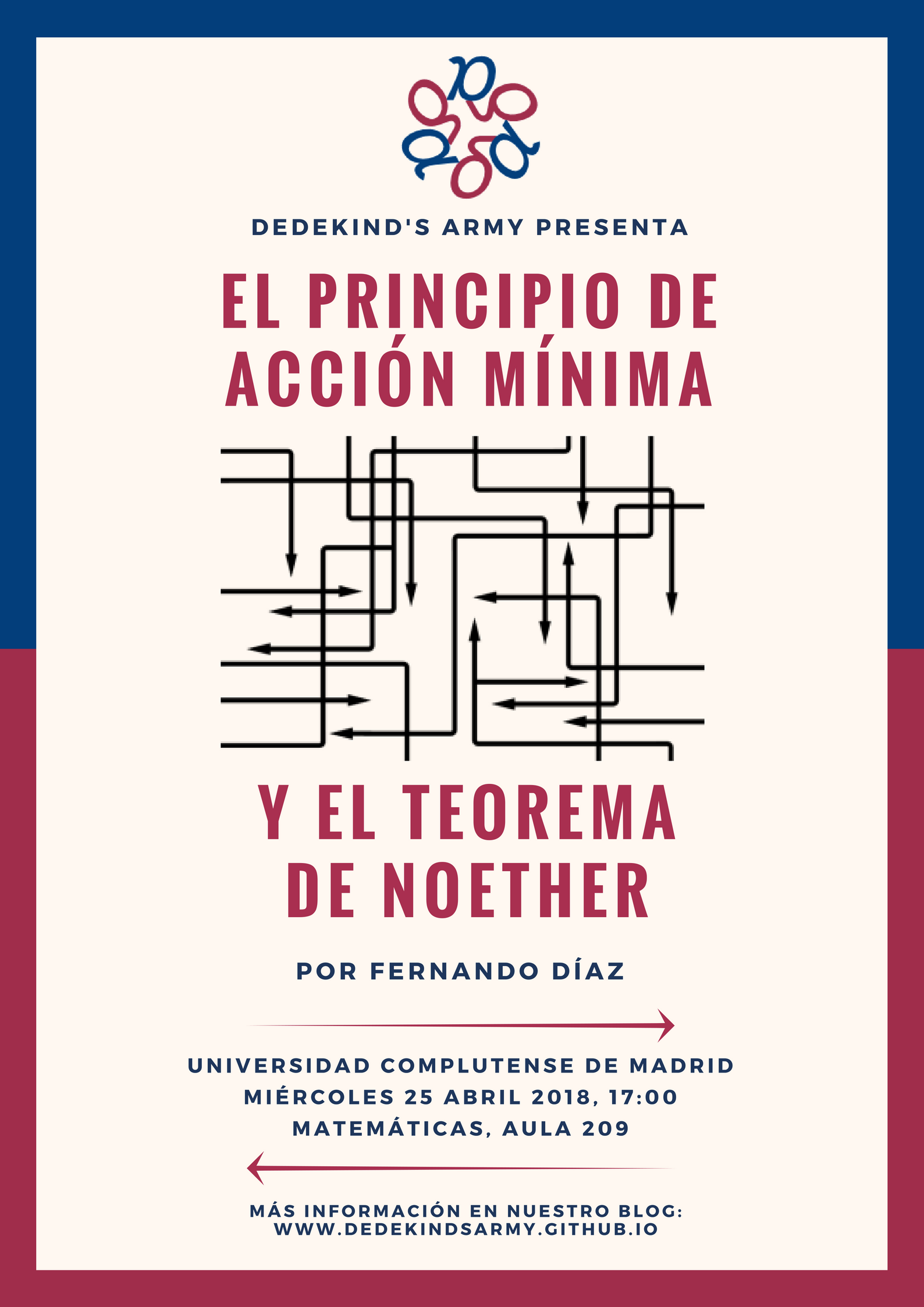Least Action Principle
Lecturer: Fernando Díaz
Date: 25/04/2018
Time: 17:00
Place: Room 209 (2nd floor, Faculty of Mathematics UCM)
Abstract:
In order to be mathematically accurate, classical mechanics need a set of axiomatic principles. These principles should allow us to deduce the most basic laws of motion (Newton’s laws) from them, but they should also enable us to discover physical laws of new, more abstract systems. The principle of least action is perhaps the simplest postulate that enables us to do just that. Also, it gives us new ways of looking at complex problems, via Euler-Lagrange equations, and even a deeper understanding of why certain quantities, such as energy or momentum, are conserved.
This last result is proved by Noether’s theorem, one of the most elegant theorems in both physics and mathematics.
Bibliography
- L. Susskind, G. Hrabovsky, Classical Mechanics: the theoretical minimum. (Penguin books, 2014)
- J. R. Taylor, Classical Mechanics. (University Science Books, 2005).
- H. Goldstein, C.P. Poole, J.L. Safko, Classical Mechanics, (Addison Wesley, 3rd edition, 2001).
Promotional poster
